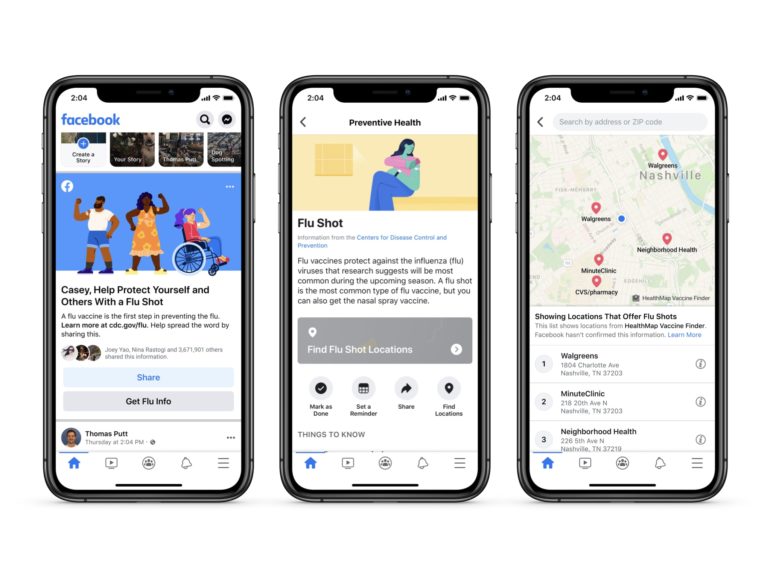Facebook said Tuesday it is launching a new global policy that bans ads that discourage people from getting vaccines. The company previously had a policy against vaccine hoaxes that were publicly identified by global health organizations.
“Now, if an ad explicitly discourages someone from getting a vaccine, we’ll reject it,” the company’s head of health, Kang-Xing Jin, and its director of product management, Rob Leathern, said in a blog post Tuesday.
The new ban comes amid a series of policy changes announced by the company to rid its social networks of problematic content it had previously been hesitant to remove. This includes a ban on Holocaust denialism announced earlier this week, a prohibition on pages and groups espousing the QAnon conspiracy theory last week, a temporary ban on political ads following the Nov. 3 U.S. election, a ban last month on any ads that seek to delegitimize the results of the U.S. election, and a decision last month to stop the spread of groups on its social network that focus on giving users health advice.
Facebook will still allow ads that advocate against government policies around vaccines, including the Covid-19 vaccine.
For instance, Facebook said it would allow ads like the ones a state delegate candidate in Virginia launched in August, which included the language “STOP FORCED CORONAVIRUS VACCINATIONS! … All medications have risks, and we believe discussion alone of mandating a vaccine before it’s released, without knowing if there’s long term side effects, is both premature and dangerous.”
However, ads that explicitly discourage vaccines — including portraying them as ineffective or unsafe, among other things — will be banned.
“If an ad that advocates for/against legislation or government policies explicitly discourages a vaccine, it will be rejected,” a spokesperson wrote CNBC. “That includes portraying vaccines as useless, ineffective, unsafe or unhealthy, describing the diseases vaccines are created for as harmless, or the ingredients in vaccines as harmful or deadly.”
The blog post also outlined the platform’s plans to direct people with general information about the flu vaccine and how to get it, using its “Preventive Health” tool.
It also said it’s working with the World Health Organization and UNICEF “on public health messaging campaigns to increase immunization rates.”
However, at least one researcher suggested Facebook’s move is a case of too little, too late.
“I think a lot vaccine [hesitancy] researchers know the potential that Facebook has to promote vaccine hesitancy,” said Kolina Koltai, a vaccine researcher at the Center for an Informed Public at the University of Washington.
“This is one step in the correct direction but still there is much work to be done to correct the damage that has already been done.” Moreover, Koltai pointed out that there’s still a lot of vaccine-hesitant content in groups and pages.
— CNBC’s Christina Farr contributed to this report.


